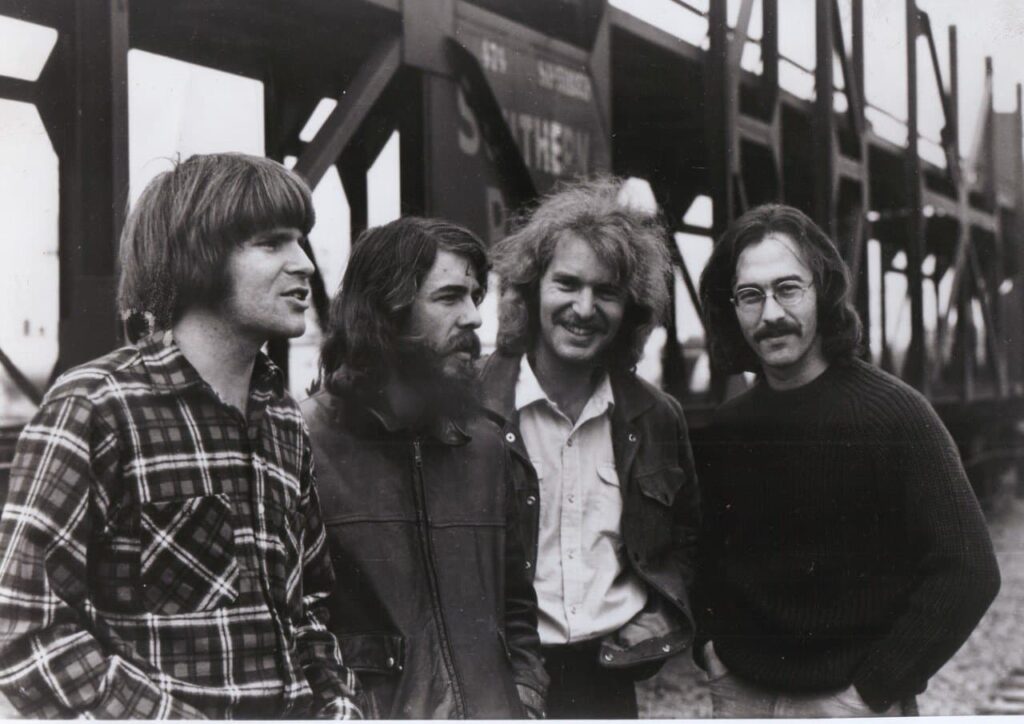
In the powerful realm of rock music, few bands have ever embodied the raw American spirit as fiercely as Creedence Clearwater Revival (CCR). Bursting onto the late 1960s and early 1970s scene with their electrifying fusion of rock and roll, blues, and country, CCR stormed the airwaves with memorable sounds led by the unmistakable voice of John Fogerty. Yet, nothing captured the fiery essence of protest and rebellion quite like their monumental hit, “Fortunate Son” – a song that has transcended decades to remain a relentless anthem of defiance.
Released in 1969 as part of a double A-side with “Down on the Corner,” “Fortunate Son” erupted with a driving beat and a powerful guitar riff, propelled by Fogerty’s raw and impassioned vocals. This sonic assault did more than entertain – it voiced the raging frustration and simmering anger of a generation bewildered by the deep scars of the Vietnam War and a society sharply divided by wealth and privilege.
The song’s piercing lyrics lay bare the bitter reality of social injustice. They tell a story all too familiar – that of privileged youth who escape war while the less fortunate are dragged into battles they never chose or believed in. “Some folks are born made to wave the flag / Ooh, they’re red, white and blue” echoes like a sharply honed arrow piercing the heart of elitism, while the defiant cry, “It ain’t me, it ain’t me, I ain’t no fortunate son,” became the battle cry for those yearning for equality and justice.
Musically, this track perfectly embodies CCR’s gritty sound – unpolished and rebellious, it mirrors the spirit of a band committed to an authentic voice that wouldn’t be silenced. The energetic rhythm compels listeners to unite, fists raised in solidarity, as Fogerty’s electrifying vocals ignite a fire of resistance.
Critics hailed “Fortunate Son” not only as a commercial triumph but as a searing social commentary, praising its sharp lyrics and unforgettable riff. Its enduring presence in classic rock playlists and countless cinematic moments cements its place as an indelible part of American culture.
But beyond its fame, the song resonates as a timeless beacon of protest—its messages of injustice, inequality, and yearning for peace remain painfully relevant. Older generations remember it as the voice of their tumultuous youth, stirring memories of a time when music was a powerful weapon against oppression.
For newer listeners, “Fortunate Son” is no less striking—its compelling themes and unforgettable riffs ensure it remains a must-hear for rock enthusiasts of all ages.
Through decades of social unrest and change, Creedence Clearwater Revival’s “Fortunate Son” stands tall—not just as a song but as an enduring emblem of resistance, raw emotion, and the unyielding fight for a fairer world. As John Fogerty’s voice blasts through decades, the anthem continues to shout the truth to power, riveting hearts and minds even today.